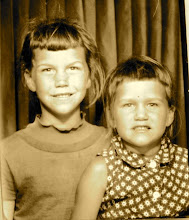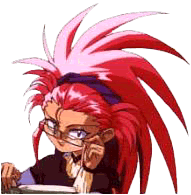
13 Books For Writers
Yes, I am about to recommend books for writers about the craft. I would never recommend any book that I have not read and used. The following books are not so much ranked but placed in the upper tier or first half, and the lower tier or second half of the list. My motivation for this T13 began as an exercise in "quick! let's get this done" and ended in a thoughtful review of books on my shelves, or in my hands, or in two cases, on my iPod and in my ears again and again. As Peter Pan says, "Look out everybody. Here we go!"
1. Strunk and White. The Elements of Style. Indispensable. Definitive. I cannot see how anyone could call himself or herself a writer without having read this. Owning a copy? I own several, including the illustrated version.
2. Zinsser. On Writing Well. Classic guide to non-fiction, says the cover. No matter what genre or sub-genre or memo you plan to write, this book is direct and readable. What I most admire about #1 and #2 is the love of language clearly singing from every page.
3. Vogler. The Writer's Journey - Mythic Structure for Writers. Eye-opening. I was planning to add Campbell's work on mythology to this list, but I believe Vogler presents mythic structure in a most delightfully accessible way.
4. Cameron. The Artist's Way. Tough program that has worked wonders for my creativity and my life.
5. Stein. Stein on Writing. Wow. Not just theory, but craft techniques and strategies that work. My copy is dog-eared and highlighted. Now I own the audio version and replay often.
6. McKee. Story. He's a god-small-g in Hollywood, so novel writers might discount these words of deep wisdom. This book is beyond marvelous. The dissection of a scene -- through postive and negative tension is worth the book's weight. Again, I've read and dog-eared and now own the audio version. I'm playing it over and over.
7. Pressfield. The War of Art. His discussion of RESISTANCE alone is worth the price of the book. The degree of resistance you have to writing, is equal to the degree to which you NEED to write. The universe wants you to succeed.
8. Gardner, John. On Becoming a Novelist (and The Art of Fiction). I met John Gardner shortly before his untimely death. Amazing raconteur, writer and teacher. He IS a master. This work resonates with truth.
9. Bernays and Painter. What If? Writing Exercises for Fiction Writers. Go back to the well, prime the pump, and see what develops.
10. Atchity. A Writer's Time. Terrific work about the process and use of time. I own two editions.
11. Lukeman. The First Five Pages. If you desire publication, this is the book for you.
12. Pickard and Lott. Seven Steps on the Writer's Path. They've nailed the journey from Unhappiness to Fulfillment. Lots of zingers here for the serious writer.
13. Baldwin, Christina. Life's Companion - Journal Writing as a Spiritual Quest. This book made me look at my life and find the courage to change. I always knew I was supposed to write and I buried that knowledge below the needs of others. My heart yearned and in the call, I found this book and stepped onto my own path.
These are by no means the only books I own on writing. I have several shelves of books that I use for teaching and for prodding my own process. These are the ones I use the most and the most important to the development of any writer.
Now, I'm going back to WRITING! Care to join me?!








7 comments:
Umm...I only own one of these: Lukeman's The First Five Pages. And I think I've referred to it twice in the four years I've owned (both times to quote from it for workshops.) I know too many writers who obsess over how-to to the point that they stagnate as writers and don't finish a manuscript. I'm too organic a writer to study how-to books. I've learned the biz the same way I've gained any education since I left high school: thru trial and error, by soaking up what I can from the world at large and by the seat of my pants.
Never even cracked open Strunk & White. (Does that make me a bad person? LOL!)
Books are food for thought. We need to be nourished. Once I had a wonderful writing teacher who told me that writers are like pebbles on the beach. Pebbles become smooth by rubbing against many other rocks and pebbles -- of various sizes and shapes and origins.
Nobody is challenging your way of finding "the answer," just asking that perhaps we might all be open to many paths.
I read the Gardner Book years ago. I think he was the one who first convinced me the craft could be learned.
Good list, Zee. I see Strunk and White is at the top of the list :) I'd like to see it at the top of all writers'. LOL
I love Robert McKee's story. What do you supose he means by the term 'opening value' or 'closing'value of a scene (p258/259) Is it an emotion? a feeling? a motivation?
He tells us to identify the value at stake in a scene, but I'm never quite sure what the terminology means.
I take McKee to mean a scene starts with either a "negative" or "positive" changes in value. Unless that scene doesn't end with the opposite charge, why write the scene? Within the scene, you can move from +/-/+/- many times, especially to increase intension, but you need to end on the opposite value. This is also the arc of the entire story. A powerless man becomes powerful. A loveless woman finds love. Story Values are the universal qualities of human experience that may shift from positive to negative or negative to positive. For example: alive/dead, love/hate, truth/lie, courage/cowardice, loyalty/betrayal. Story Value as used here can public values like freedom/slavery or justice/injustice. Or Story Values might be interior values such as self-awareness/self-deception or life-as-meaningless/meaningful.
I love this book. Makes so much sense and works during revision to hone the development of a full story.
"Story Value as used here can public values like freedom/slavery or justice/injustice. Or Story Values might be interior values such as self-awareness/self-deception or life-as-meaningless/meaningful"
Thank you, Zee, that's very helpful. So as long as something in the scene ends up as a reversal, it doesn't matter too much exactly what that something is?
The value as to be the opposite in a pair, but this is tied to the core of the character. I keep reading and it's so interesting.
Post a Comment